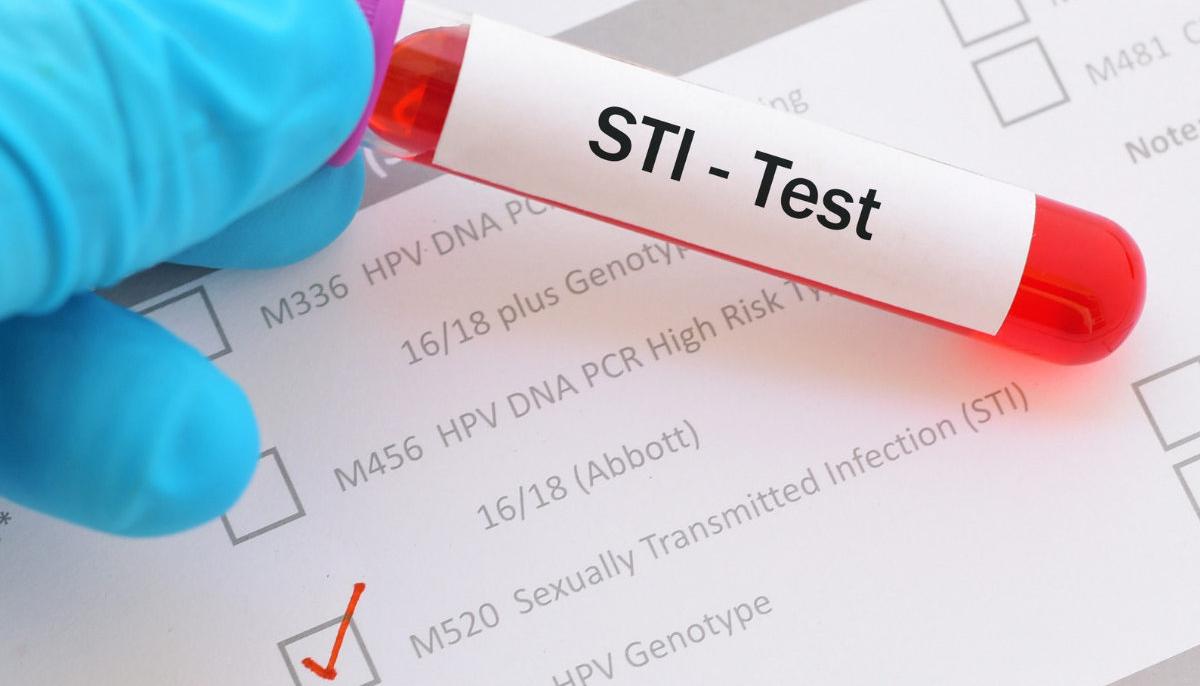A woman who intends to become pregnant must be tested for sexually transmitted diseases, because a large part of them are transmitted from mother to fetus, either during pregnancy (through the placenta) or when labor begins, either during birth.
HIV
The Human Immunodeficiency Virus - HIV - affects the body's immune system, so that it cannot fight against infections. HIV can be transmitted from one person to another through sexual contact, and the only way to find out if you have contracted the virus is through testing.
It is important for pregnant women to be tested for HIV antibodies, because treatment can reduce the risks of transmitting the virus to the baby during pregnancy, during childbirth or during breastfeeding. Testing pregnant women for HIV antibodies is a common practice when they go to the prenatal clinic for their first visit. The test is included in routine blood tests, so it involves obtaining a blood sample.
HIV testing during pregnancy now represents approximately 750,000 tests per year, and more than 99% of the results are negative. If the test indicates a positive HIV result, the specialists provide information about the benefits of antiretroviral drug therapy for mother and child, as well as further recommendations.
HIV treatment is so effective now that infected people can live a long and happy life and can even become parents .
Chlamydia
Chlamydia is the most common sexually transmitted infection in Romania, but it can be treated. If you are under 25 years old, you have a 1 in 10 chance of having this infection. Most women (70%) do not know that they are infected, because they do not show signs or symptoms.
Untreated, Chlamydia can cause complications during pregnancy, can infect the lining of the uterus and can be transmitted to the child during birth, and the consequences would be infection of the child's eyes and lungs. These complications can be easily prevented by taking antibiotics, even during pregnancy. When registering, the prenatal clinic offers a Chlamydia test, which simply involves collecting a sample of genital secretion.
It is very important that the partner is also tested and treated (if applicable), so that you do not get infected again.
Gonorrhea
Gonorrhea is a common bacterial infection that can cause an unusual discharge from the vagina and can cause pain when urinating, bleeding after sexual contact and itching in the genital area. It is transmitted through sexual contact, including oral and anal.
If you are pregnant and think you might be infected with gonorrhea, it is very important to get tested because it can cause ectopic pregnancy, miscarriage, premature birth, premature rupture of the membranes, infections of the sac and amniotic fluid and many other problems .
During birth, this infection can be transmitted to the baby as it passes through the birth canal, which can cause eye problems (conjunctivitis).
Gonorrhea is easy to diagnose, through a swab test, and is effectively treated with antibiotics. It is necessary for your partner to be tested and treated, if necessary.
If left untreated, gonorrhea can cause long-term problems, including infertility.
Herpes
Genital herpes is caused by the Herpes Simplex virus (HSV) and is a long-term disease that affects approximately 5 million people in Romania. It is similar to the virus that causes oral herpes. Once a person is infected, the virus can remain latent (inactive) for long periods of time. The symptoms consist of lesions in the vaginal, anal and upper thigh areas. It is transmitted through sexual contact, including oral and anal.
The initial symptoms are few or even stick to everything, some notice a sensation of tingling or burning around the genital or rectal organs, followed by the appearance of small or painful wounds. These pustules usually heal within four weeks. Additional symptoms may also occur, such as fever, swollen lymph nodes, muscle pain, and pain when urinating. The virus can be dormant or active (known as a flare) several times a year, although this tends to diminish over time.
There are certain things that can trigger the activation of the virus, causing the appearance of painful pustules in the genital region. Pregnancy can trigger a rash, and this, in certain circumstances, can be transmitted to the baby during birth. If the virus is contracted during pregnancy, the child is also exposed to the risk of contracting it and getting sick. This can cause brain damage, eye problems and rashes in newborns. It can also increase the risk of premature birth or stillbirth. A herpes outbreak during childbirth may require a caesarean section to reduce the chances of the baby contracting the disease.
Herpes is usually diagnosed through a physical exam, although it is possible to perform a swab test on the area. Although herpes is definitely incurable, it is easy to treat and can be effectively controlled using antiviral drugs .
Genital warts. Genital warts
Genital warts are small growths that appear around the genital and anal area. They are caused by a viral infection of the skin caused by the Human Papillomavirus (HPV). Genital warts spread through contact with the skin, so sexual penetration does not have to have occurred to be infected. It is one of the most common sexually transmitted infections in Romania, and some estimates show that 50% of the population is infected with HPV. There are over 100 strains of HPV, approximately 30 of which are transmitted through sexual contact. Some strains can be very serious and can cause vulvar, cervical or penile cancer. For this reason, it is very important that women do the Pap test regularly .
During pregnancy, warts can grow a lot, which makes urination difficult. They can also block the birth canal, making C-section the safest option. In rare cases, the virus can be transmitted to the child during birth, and warts can grow in the child's throat, which makes breathing difficult.
If the warts are not visible, a simple swab test (soaked in acetic acid) can indicate the presence of the virus. Even if they do not heal, genital warts are easy to treat either by using creams or by cryotherapy (freezing). If the warts are extensive, this may require specialized treatment.
Bacterial vaginosis (BV)
Bacterial vaginosis is a common condition faced by one in three women, but very dangerous if left untreated, in pregnant women . It occurs when the ratio of good and bad bacteria in the vagina goes out of balance, and the bad bacteria grow and outnumber the good bacteria. It can cause a gray vaginal discharge with a "fishy" smell.
While bacterial vaginosis is not sexually transmitted, it can still be associated with having sex with a new partner. Testing involves a simple test - vaginal swab. Because of bacterial vaginosis, women have a high risk of contracting a sexually transmitted infection because the reduction of good bacteria affects the body's ability to protect itself. The treatment is easy, with antibiotics, even if you are pregnant.
Untreated it can cause:
- Pregnancy loss - women with bacterial vaginosis are 6 times more likely to have a miscarriage than other women
- Premature birth - women with bacterial vaginosis are twice as likely to give birth before 37 weeks as other women
- Rupture of the amniotic sac before the baby is ready to be born (this is also called spontaneous rupture of the membranes)
- Chorioamnionitis - an infection of the chorion and the amniotic membranes (the membranes that form the amniotic sac) and the amniotic fluid (the fluid that surrounds the fetus)
- Postpartum endometritis - irritation or inflammation of the lining of the uterus after childbirth
Candida albicans
Also called candidiasis, it is a fungal infection frequently present in the vagina, but it does not usually produce any symptoms because its development is kept under control by normal bacteria. If the immune system is affected in any way, following antibiotic treatment, due to stress or pregnancy, the fungus can grow and cause itching, irritation, redness and pain and swelling of the vagina and vulva. There may also be a thick, creamy secretion, but without an unpleasant smell.
During pregnancy, the body goes through several changes, which makes the occurrence of candidiasis more likely, especially during the third trimester of pregnancy. Although this may cause some discomfort, there is no evidence that it can harm the unborn child. Candidiasis can be treated with a cream and an ovule (a tablet inserted into the vagina) containing clotrimazole or a similar antifungal medicine.
Pregnant women should talk to the doctor or pharmacist before using the treatment for candidiasis, but it would be preferable to avoid the treatment. Even if the baby can contract the disease at birth, it is nothing to worry about, as it can be easily treated .
HIV/STI/STD prevention
- Reduced number of sexual partners
- Always use a condom or foil for oral sex
- Do not use sex toys together with other people
Test yourself frequently for sexually transmitted infections and HIV, together with your partner.







